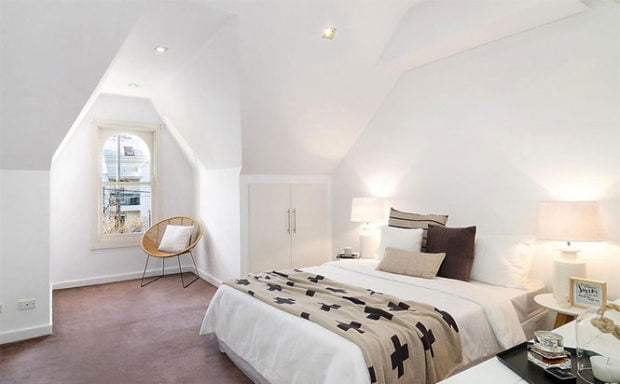You might have heard about off-market selling, where a property is sold without any public advertising. This only happens with a very small percentage of properties overall but we’re definitely seeing it a bit more often in major metro markets these days.
There are significant risks for vendors who choose to go this way because without going on the open market, there’s no way to ensure every possible buyer has seen your property. And you need competition to flush out the maximum price that your home is worth.
 image via McGrath
image via McGrath
But for some vendors, this risk is worth it. There are some circumstances where the importance of getting a deal done quickly for a reasonable price outweighs the alternative of going to the open market and negotiating with buyers over several weeks for the best price. Such circumstances include relationship breakdown and financial stress.
Other vendors like off-market selling because it enables privacy. This is often the main priority for prestige clients. They typically don’t need a quick deal and are happy to wait for a good offer whilst avoiding public advertising campaigns and the intrusion of opens. They will list with an agent who will then work their database to find suitable buyers.
Some clients list off-market just to test the waters, in the hope their dream price will be offered. In the lower to middle market, some vendors go off-market because their property is tenanted and they can’t get access to style and prepare the property for a photo shoot.
Others do it purely to avoid the cost of a marketing campaign – but ultimately, I think sellers pay for this strategy with a reduced sale price due to reduced competition.
So why is off-market selling on the rise?
The primary reason is that agents have created the ability to sell without advertising through database marketing.
The old way – placing ads in the paper and waiting for buyers to come to you, is over. The best agents are going after buyers themselves and dedicating more time to developing personal relationships with the purchasers they meet at opens and online.
Another reason is the growth of the buyers’ agent industry. They were once only used by prestige buyers but today they are also very popular with time-poor families, couples and executive singles purchasing in the lower to middle price brackets too.
Smart selling agents love buyers’ agents because they’re a direct avenue to highly motivated purchasers ready to buy now. That’s helpful when your vendor needs to sell quickly, for example.
Buyers’ agents are also being increasingly proactive in approaching home owners directly to see if they’re interested in selling – especially in markets that are undersupplied. This often occurs when a client wants to live on a particular street, or they have identified specific houses that they are interested in.
Owners are often open to selling in such circumstances if the buyer is willing to pay big. There’s also the ‘bonus’, as the seller might perceive it, of no selling agents’ fees. However, this scenario only works if they get a true premium price above market value.
My general advice to sellers is to look carefully at the pros and cons if you’re considering selling off-market. In my opinion, there are more cons, as you’re highly likely not to get the best price for your property.
There is no doubt that putting your home on the open market, with appropriate print and online marketing, is the best way to achieve the best price.
If you do go off-market, select your agent carefully. Make sure you’re investing in someone who is going to put in the time and energy to match your property to suitable buyers and call them individually to discuss your home – not just send a group email with a brochure attached.
Lastly, buyers can get access to off-market opportunities by engaging with selling agents and having their criteria registered on their databases; or by employing a buyers’ agent.
Follow John McGrath: Website | Facebook | Twitter




















